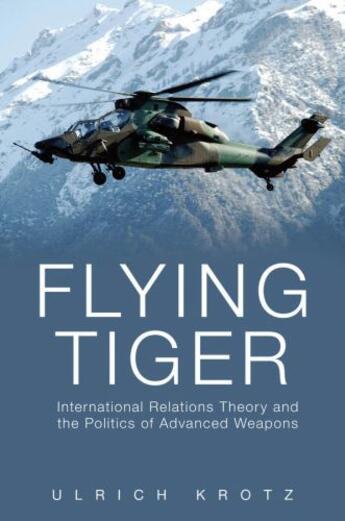Résumé:
The rivalry between Germany and France in the nineteenth and twentieth centuries is well known. It was directly or indirectly responsible for four cataclysmic wars, and until recently, the idea that these two states could become close partners seemed implausible. Yet, following World War II and... Voir plus
The rivalry between Germany and France in the nineteenth and twentieth centuries is well known. It was directly or indirectly responsible for four cataclysmic wars, and until recently, the idea that these two states could become close partners seemed implausible. Yet, following World War II and the birth of the European Union, they became the closest of allies. In fact, they collaborated for almost four decades on one of the most sophisticated weapons that Europe has produced: the Tiger Helicopter. How did this occur, and what does this unlikely outcome tell us about how interstate relations really work?
Through the lens of the Tiger, Ulrich Krotz draws from two theoretical approaches--social constructivism and historical institutionalism--to reframe our understanding of how international relationships evolve. How does a relationship between states affect a state internally? And how do the internal dynamics of a state limit such relationships? While other scholars have touched on these issues, until now no one has provided a sustained, finely--grained, and historically--informed analysis that explains how international relations inform domestic realities and how, in turn, domestic politics and institutions structure interstate relationships. Two famous rivals reshaped their relationship through a complicated, decades-long process, and in doing so, the nuts and bolts of domestic politics-approvals for state funding, or laws regarding corporations and technology transfer, for instance-were instrumental in creating a new reality.
Fully researched in French, German, and English, Krotz's account of how the Tiger project was conceived and funded, and how the combat helicopter was built and exported, presents a clear analysis of the dialectical relationship between 'high' interstate politics and 'low' domestic politics. In sum, it is a groundbreaking theoretical contribution to international relations scholarship.
Donner votre avis















